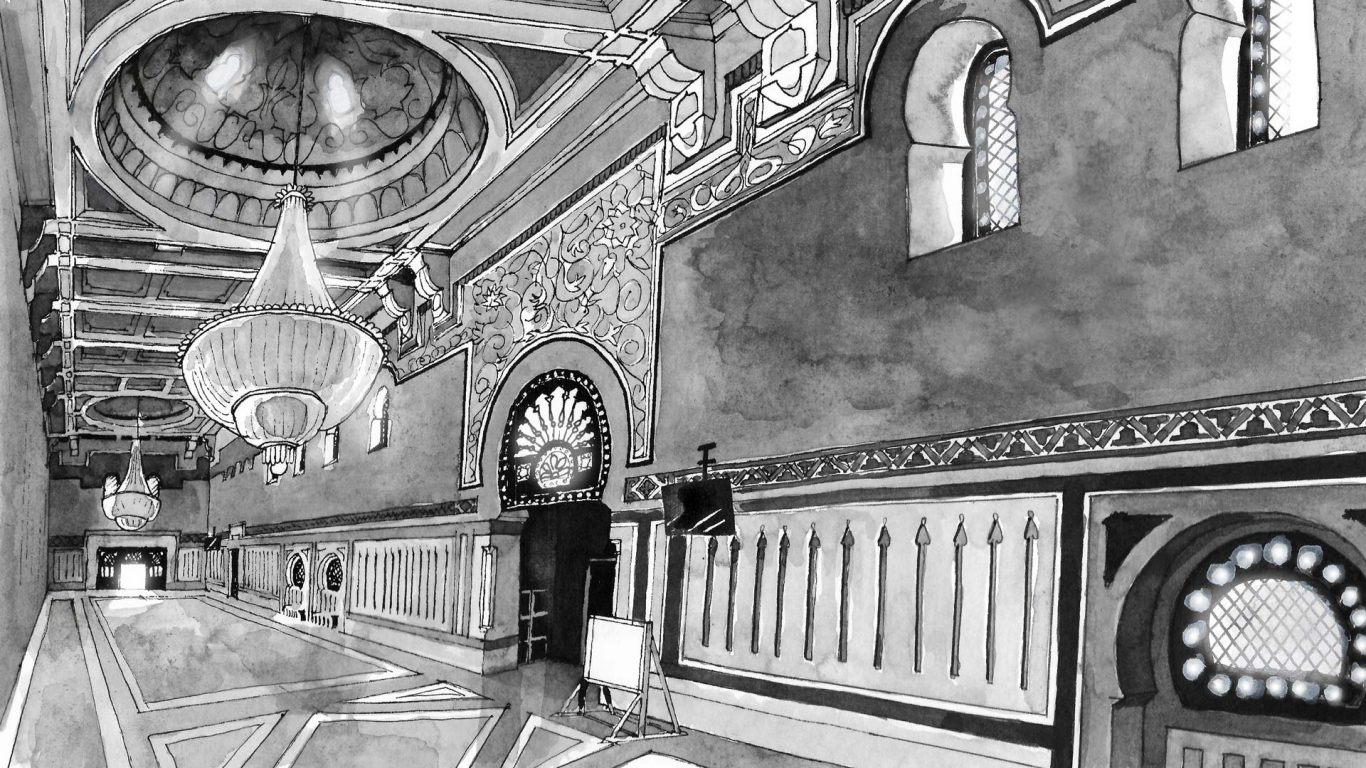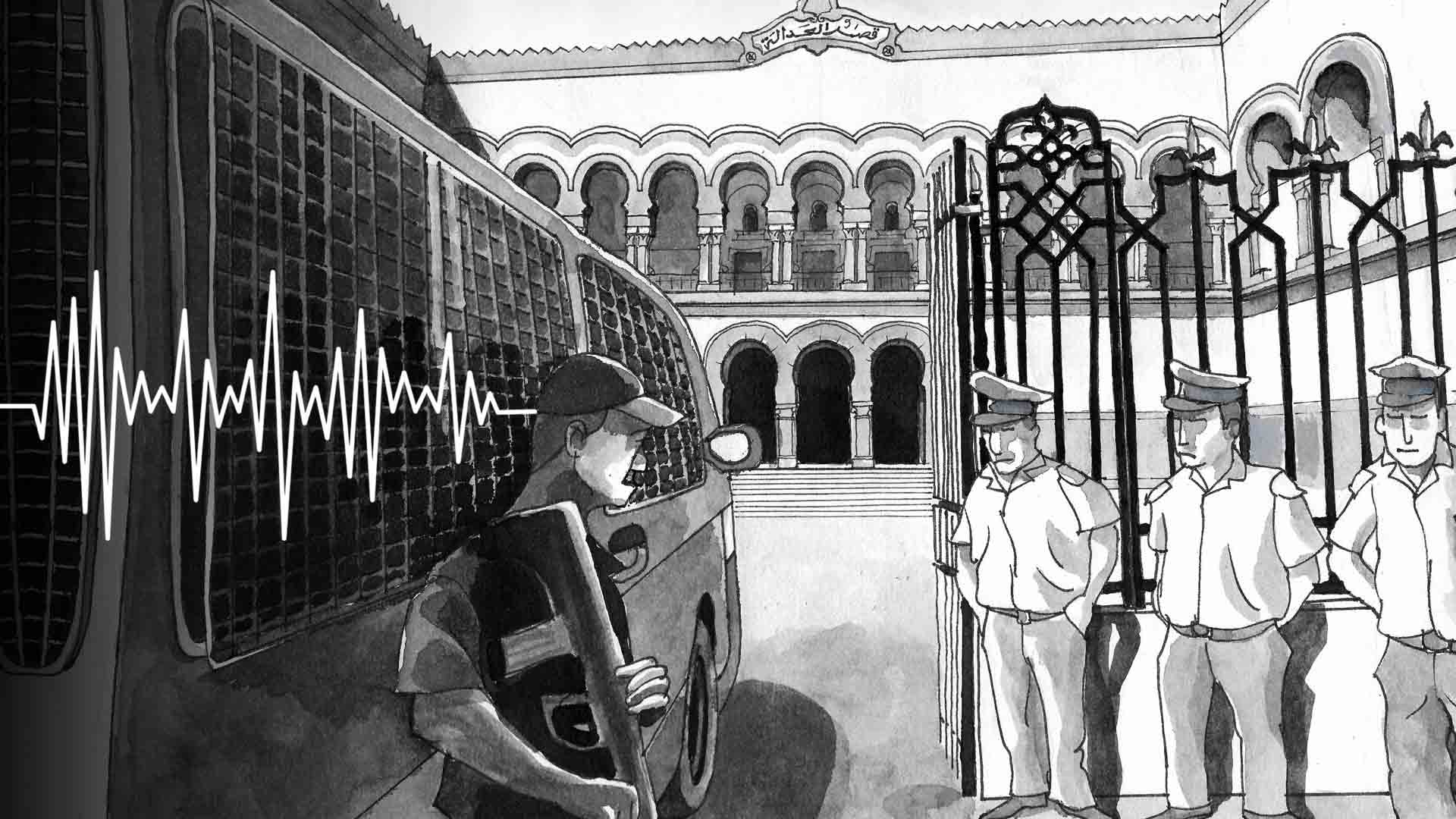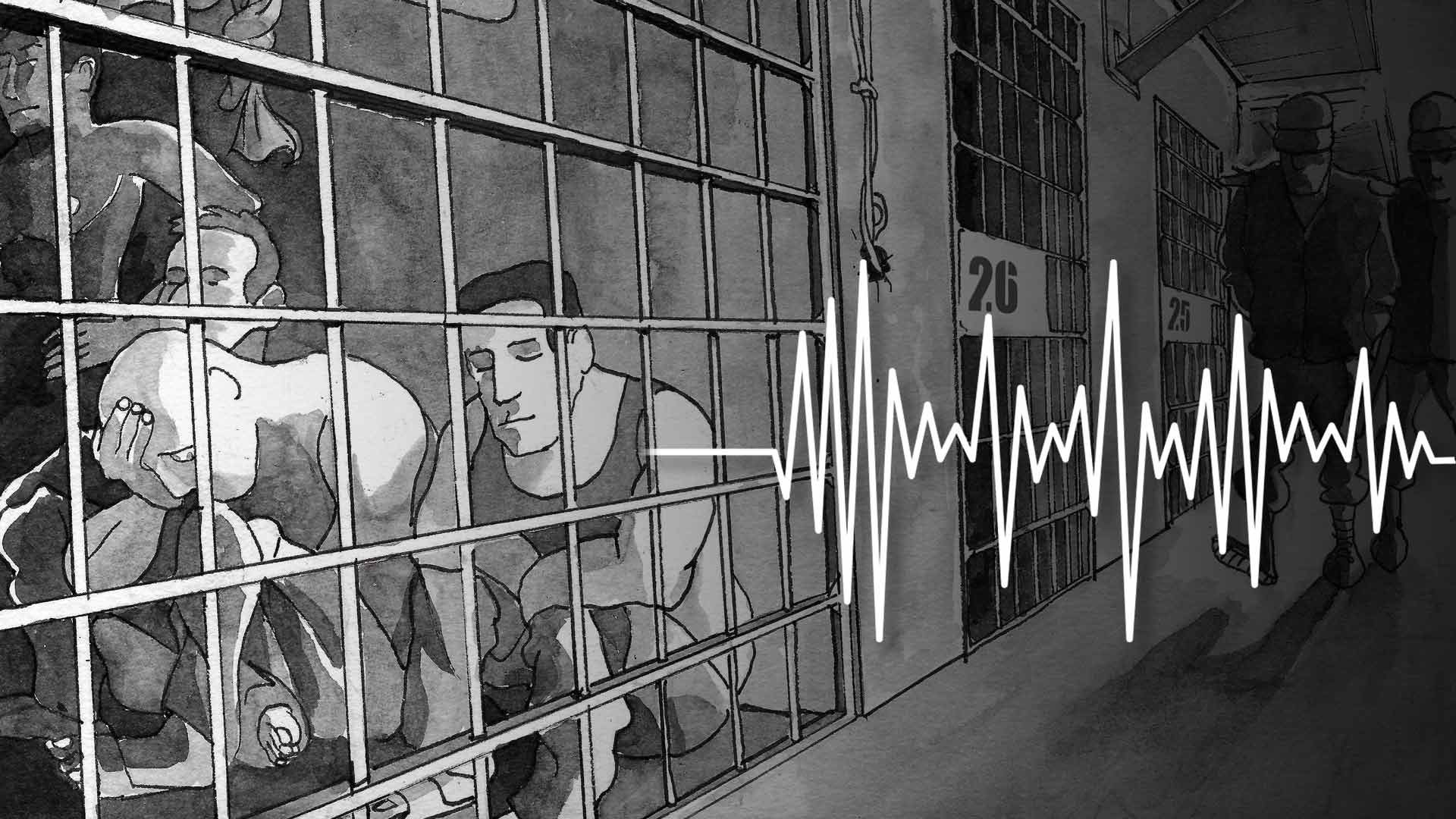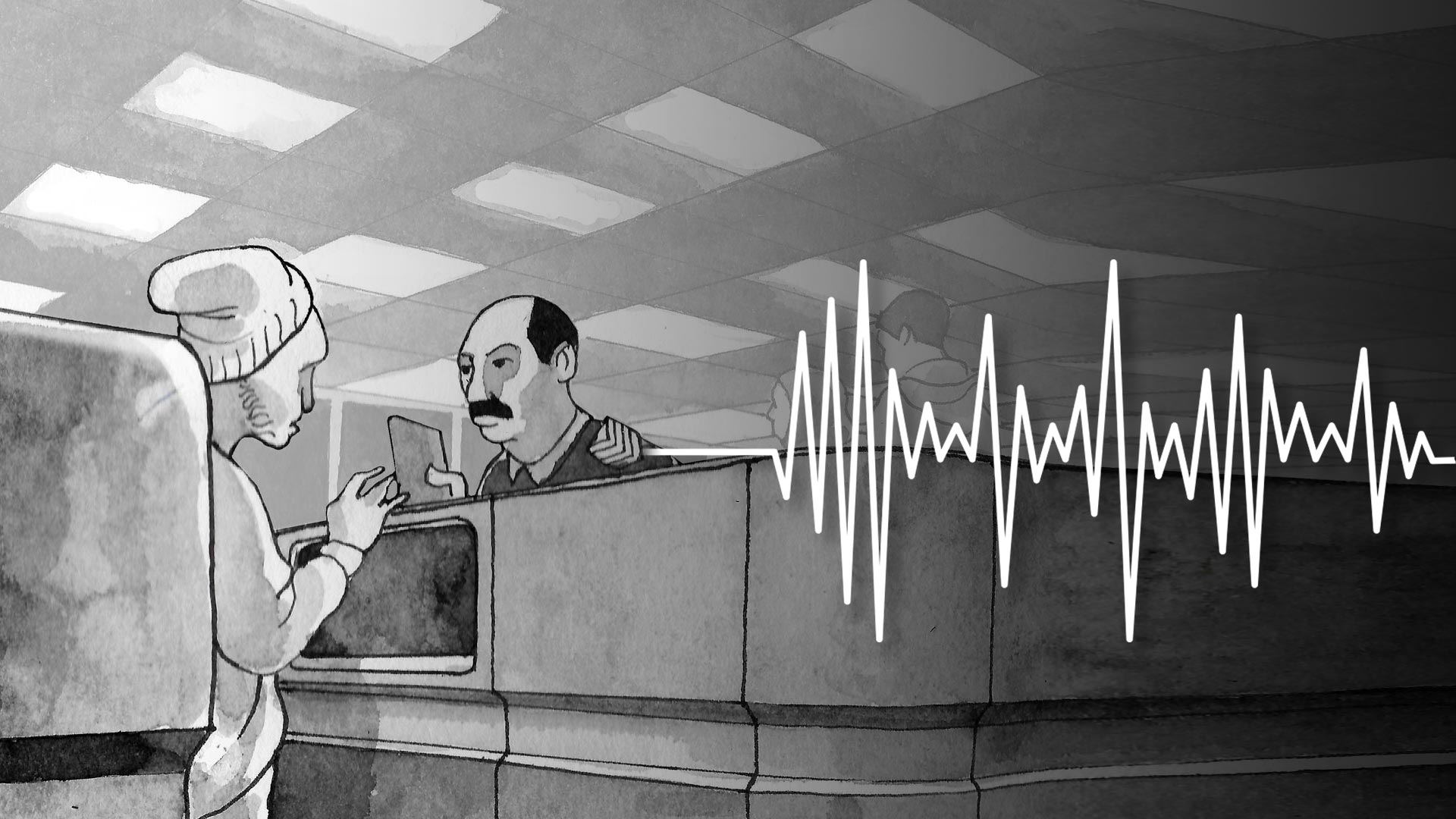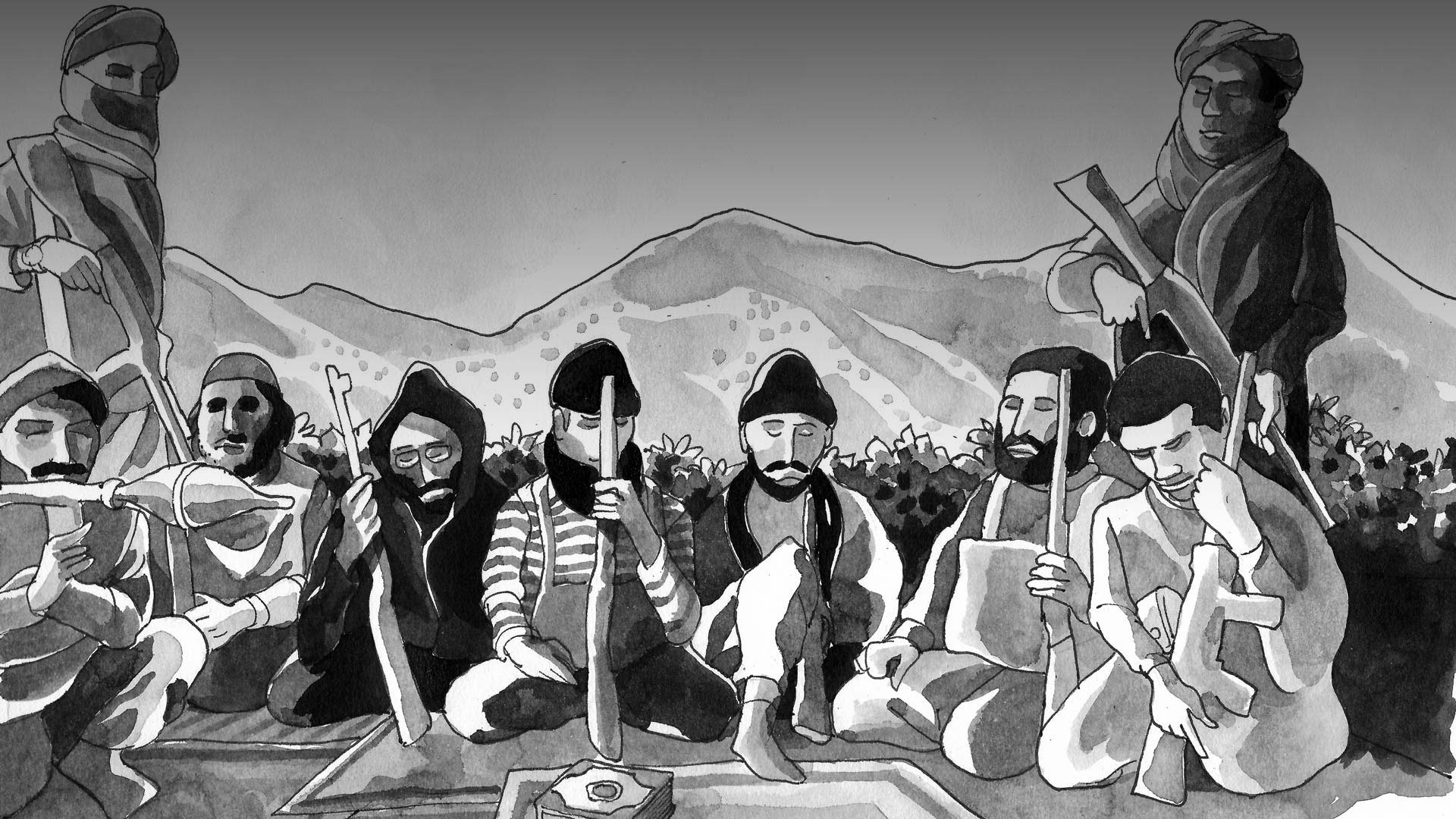| EPISODE 1
The Inner Workings of the Tunis Courthouse
Created by
Christophe Cotteret
Illustrations
_Z_
Sound Recording and Montage
Bochra Triki
Sound Design and Mixing
Oussema Gaidi
Voice-Acting and Interviews
Christophe Cotteret
Music
Omar Aloulou
Voix off
Monia Ben Hamadi
Doublage
Maher Dhahbi
Along the worn-out wooden benches of courtroom No. 6, terrorism trials are held every Tuesday and Friday. In fact, it is between these four walls that the largest amount of terrorism trials in the world are held. Between September 2015 and June 2018, 4572 cases were tried within these few sqaure metres, of which 1804 defendants were detained.
In the first chapter, Christophe Cotteret describes the atmosphere of the courthouse: the hallways, the rooms and the offices. The defendants parade in front of the judges, the lawyers take their seats, carrying thick case files, and the very same dance is repeated over and over each week.
"I wanted to go to paradise.” “Well did you eventually find it? If so, would you be please lend me the keys?"
A judge who requested to remain anonymous (referred to as Judge "X"), defense lawyers Béchir Akremi (the former investigative judge in charge of antiterrorism) and Philippe Dorcet (the former investigative judge and subsequent president of the Court of Cassation in Nice), all offer inside information to the story.
The accounts are often about banal cases and amusing or pathetic scenes, but also somewhat about the trials of the Bardo-Sousse attacks, uncovering a flawed security and judicial systems.
The Dilemma of The Antiterrorist Justice System
Latest episodes
| EPISODE 4
Torture and detention: A Radicalisation Machine
| EPISODE 3
The returnees who cannot return
| EPISODE 2
The Origins of the Disaster
ABOUT
Inkyfada Podcast is the first platform entirely dedicated to original Tunisian podcasts, and was conceived by Inkyfada media in collaboration with the in-house research and development laboratory, InkyLab. Inkyfada joined the global podcast boom in 2017, when the team produced the first Tunisian audio documentary, diving deep into the belly of the El Kamour struggle taking place in the desert. Since then, Inkyfada Podcast has produced a wide variety of documentaries, investigations, and podcast series, as well as articles accompanied by music; covering a multitude of contemporary issues in order to offer an immersive and alternative podcast experience. Whilst exclusively offering audio content, the Inkyfada Podcast team upholds the same core values and principles of inkyfada.com, and is committed to producing high quality content though a dynamic and meticulous production process. In addition to the permanent team, Inkyfada podcast works closely with various journalists, artists, illustrators, musicians and other content creators in order to diversify the platform and support artistic creativity. These podcasts differ from traditional radiophonic content in that the applied production and editing process is more akin to cinematographic techniques, in addition to being web-based, downloadable and accessible on demand. Additionally, Inkyfada Podcast uniquely offers subtitles in French, Arabic and English for all audio content, the majority of which is recorded in Tunisian or in the preferred language of the speaker in question.




